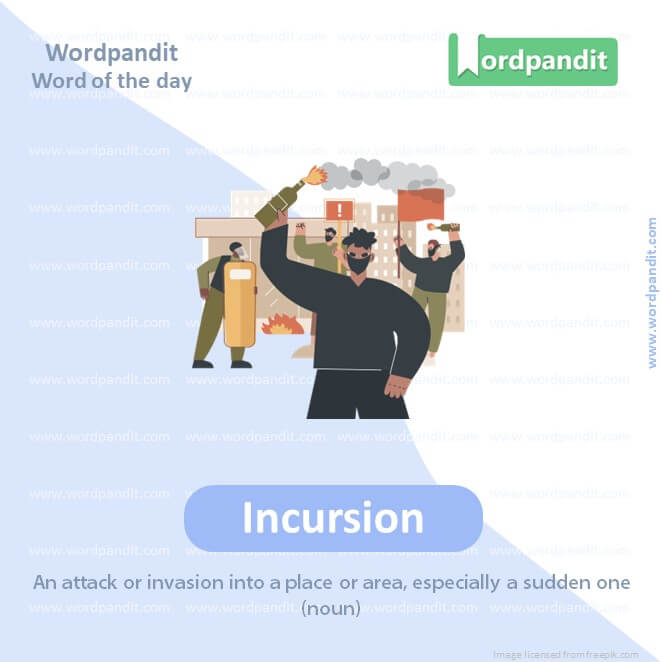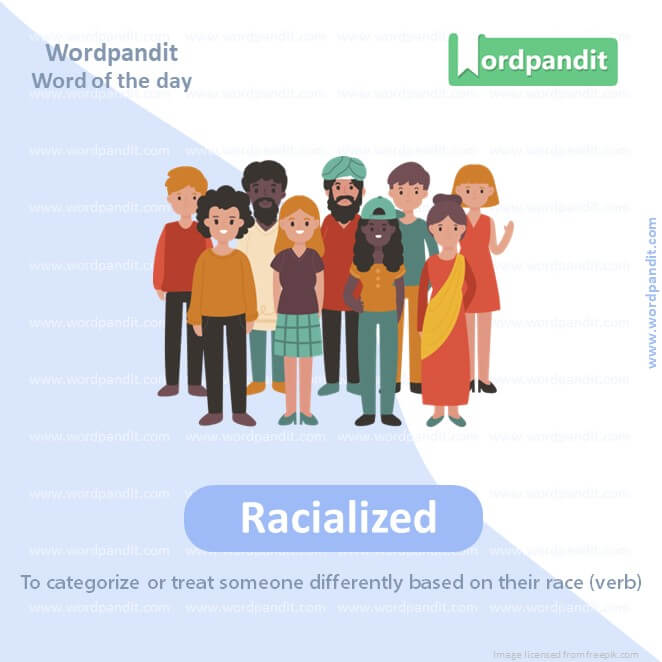Daily Vocabulary Words: List of Daily Used Words in Leading International Newspapers
Hi there. Welcome to this special section @ Wordpandit.
Our endeavour here is very simple: to highlight important daily vocabulary words, which you would come across in leading newspapers in the country. We have included the following newspapers in our selection:
• The New York Times
• The Washington Post
• Scientific American
• BBC
• The Guardian
• Psychology Today
• Wall Street Journal
• The Economist
We are putting in extensive work for developing your vocabulary. All you have got to do is be regular with this section and check out this post on a daily basis. This is your repository of words that are commonly used and essentially, we are posting a list of daily used words. Hence, this has significant practical application as it teaches you words that are used commonly in leading publications mentioned above.
Visit the website daily to learn words from leading international newspapers.

WORD-1: Intimidation
CONTEXT: Chutkan’s gag order tried to balance Trump’s First Amendment rights to assail the prosecution with the need to protect witnesses and court personnel from intimidation and potential violence.
SOURCE: Washington Post
EXPLANATORY PARAGRAPH: Imagine someone at school making a scary face or threatening to take your lunch unless you give them your spot in line. That’s what “intimidation” means. It’s when someone tries to scare someone else into doing what they want.
MEANING: The act of frightening someone to make them do what you want
(noun).
PRONUNCIATION: in-tim-ih-DAY-shun
SYNONYMS: bullying, coercion, terrorization, threats, menace
USAGE EXAMPLES:
1. The bigger kids used intimidation to take over the playground.
2. Intimidation should not be tolerated in any workplace.
3. He felt a sense of intimidation when he saw the crowd.
4. The use of intimidation can undermine trust.

WORD-2: Incursion
CONTEXT: The incident marks a significant escalation, as it represents Israel’s deepest incursion into Lebanese territory since 8 October and its most significant attack since July 2006.
SOURCE: Guardian
EXPLANATORY PARAGRAPH: Imagine a group of ants suddenly coming into your picnic area and starting to take food. An “incursion” is like this but can be about people or armies going into a place where they’re not supposed to be.
MEANING: An invasion or attack, especially a sudden or brief one (noun).
PRONUNCIATION: in-KUR-zhun
SYNONYMS: invasion, raid, intrusion, inroad, foray
USAGE EXAMPLES:
1. The incursion into enemy territory was unexpected.
2. The sudden incursion of cold air made everyone shiver.
3. Their peaceful village faced an incursion by bandits.
4. He talked about the historical incursions across the border.
WORD-3: Inauspicious
CONTEXT: Cannon got off to an inauspicious start when, at the outset of the classified-documents case, she took the extraordinary step of naming a special master to oversee the government’s review of the documents the FBI seized.
SOURCE: Washington Post
EXPLANATORY PARAGRAPH: Imagine starting a soccer game and immediately it starts to rain heavily, making it hard to play. “Inauspicious” is used to describe a start or sign that suggests things won’t go well.
MEANING: Not conducive to success; unpromising (adjective).
PRONUNCIATION: in-aw-SPISH-us
SYNONYMS: unlucky, unfortunate, unfavorable, ill-omened, adverse
USAGE EXAMPLES:
1. The dark clouds were an inauspicious start to our picnic.
2. He received some inauspicious news on his first day at work.
3. Their partnership began under inauspicious circumstances.
4. The project had an inauspicious beginning with many setbacks.

WORD-4: Racialized
CONTEXT: D.E.I. is “bad” because it supplants merit for diversity and it empowers the racialized federal government to stick its hands into an institution that produces the cultural elite.
SOURCE: New York Times
EXPLANATORY PARAGRAPH: Imagine people being treated differently because of their hair color, like only kids with blonde hair getting to play a game. “Racialized” refers to when people are treated based on their race, often in a way that isn’t fair.
MEANING: To categorize or treat someone differently based on their race (verb).
PRONUNCIATION: RAY-shuh-lyzed
SYNONYMS: ethnically identified, classified by race, racially distinguished
USAGE EXAMPLES:
1. The racialized policies affected where people could live and go to school.
2. Discussions about racialized communities are important for understanding inequality.
3. The study focuses on racialized representations in the media.
4. She spoke about the challenges faced by racialized employees in the workplace.

WORD-5: Meritorious
CONTEXT: Whether higher education is less meritorious now than it was in some unspecified past cannot be measured.
SOURCE: New York Times
EXPLANATORY PARAGRAPH: Imagine doing all your homework really well and helping out in class, and your teacher gives you a gold star because you did a great job. “Meritorious” means deserving praise or reward because of doing something well.
MEANING: Deserving reward or praise (adjective).
PRONUNCIATION: mer-i-TORE-ee-us
SYNONYMS: praiseworthy, commendable, laudable, worthy, deserving
USAGE EXAMPLES:
1. She received an award for her meritorious service.
2. His actions were considered highly meritorious.
3. The judge acknowledged the meritorious conduct of the citizen.
4. They were honored for their meritorious achievements in science.

WORD-6: Iteration
CONTEXT: Trump 2.0 will be more focused and more capable than the initial iteration.
SOURCE: New York Times
EXPLANATORY PARAGRAPH: Imagine drawing a picture, then trying to draw it again a little better each time. Each new drawing is called an “iteration.” It’s when you repeat something again and again, trying to improve it each time.
MEANING: The repetition of a process or utterance (noun).
PRONUNCIATION: it-uh-RAY-shun
SYNONYMS: repetition, version, recurrence, redo, repeat
USAGE EXAMPLES:
1. Each iteration of the software included new features.
2. The team reviewed several iterations of the design before finalizing it.
3. The latest iteration of the phone is thinner and faster.
4. He learned the process through several iterations of practice.
WORD-7: Ginning
CONTEXT: Rufo explained his plan for ginning up controversy about higher education’s most prestigious universities in an interview on the heels of Dr. Gay’s resignation, explaining that it was a coordinated, strategic attack that used narrative, financial and political leverage.
SOURCE: New York Times
EXPLANATORY PARAGRAPH: Imagine you have a machine that helps you separate candy from wrappers quickly. “Ginning” is a similar idea but for cotton. It’s the process where machines separate cotton fibers from seeds.
MEANING: Operating a machine that separates cotton fibers from their seeds (verb).
PRONUNCIATION: GIN-ning
SYNONYMS: processing, separating, extracting, cleaning, refining
USAGE EXAMPLES:
1. They spent the day ginning cotton at the farm.
2. The ginning process is crucial for preparing cotton for market.
3. His family owned a ginning business.
4. Modern ginning techniques have improved efficiency.
WORD-8: Ostensibly
CONTEXT: A hearing ostensibly about antisemitism on campus quickly became little more than a coordinated political spectacle about power.
SOURCE: New York Times
EXPLANATORY PARAGRAPH: Imagine saying you need to tidy your room, but really, you just want to find your lost toy. “Ostensibly” means saying one thing is the reason for doing something but actually having a different reason.
MEANING: Apparently or purportedly, but perhaps not actually (adverb).
PRONUNCIATION: os-TEN-suh-blee
SYNONYMS: apparently, seemingly, supposedly, outwardly, allegedly
USAGE EXAMPLES:
1. He was ostensibly working late to finish the project, but really he was avoiding traffic.
2. The meeting was ostensibly about security, but it focused more on budget cuts.
3. She visited ostensibly to check on him, but she wanted to see his new house.
4. The policy was ostensibly designed to reduce spending.
WORD-9: Resentment
CONTEXT: It is most galling at the most prestigious institutions, where status granted without concern for merit breeds resentment.
SOURCE: New York Times
EXPLANATORY PARAGRAPH: Imagine if your sibling always gets to pick the TV show, and you hardly ever do. You might start to feel really annoyed and unfair about it. That feeling is called “resentment.” It’s when you feel bitter because you think something is unfair.
MEANING: Bitter indignation at having been treated unfairly (noun).
PRONUNCIATION: re-ZENT-ment
SYNONYMS: bitterness, indignation, displeasure, grudge, dissatisfaction
USAGE EXAMPLES:
1. He harbored deep resentment towards his boss for the unfair treatment.
2. Resentment grew among the team due to lack of recognition.
3. She felt resentment at being overlooked for promotion.
4. Resentment can poison relationships if not addressed.
WORD-10: Antisemitism
CONTEXT: A hearing ostensibly about antisemitism on campus quickly became little more than a coordinated political spectacle about power.
SOURCE: New York Times
EXPLANATORY PARAGRAPH: Imagine if some kids at school were treated badly just because they have a certain type of lunchbox. “Antisemitism” is like that but much worse. It’s when Jewish people are disliked or treated unfairly just because they are Jewish.
MEANING: Hostility to or prejudice against Jews (noun).
PRONUNCIATION: an-ti-SEM-i-tiz-um
SYNONYMS: Judeophobia, racism against Jews, anti-Jewish sentiment
USAGE EXAMPLES:
1. The community held a workshop to educate against antisemitism.
2. Antisemitism has no place in modern society.
3. The rise of antisemitism in the region is alarming.
4. He spoke out against the dangers of antisemitism at the conference.
Vocabulary SSC
Navigating the path to success in competitive examinations like the Staff Selection Commission (SSC) triggers a keen focus on ‘vocabulary SSC’. This collection of words, often prominent in SSC examinations, holds paramount importance, and forms a significant part of a candidate’s linguistic preparation. However, mastering ‘vocabulary SSC’ is a process that requires deliberate strategy and dedication.
To begin the journey with ‘vocabulary SSC’, a structured learning regime is key. Break the learning process into manageable chunks. Concentrate on a set number of words each day. This steady, consistent approach reduces the risk of burnout and enhances long-term retention of vocabulary.
The strategic use of memory aids can significantly boost the learning of ‘vocabulary SSC’. Utilize flashcards, memory apps, or even create personal mnemonics to help remember each word and its meaning more effectively. Associating a word to a personal event or object creates a lasting mental connection, making recall easier.
To truly master ‘vocabulary SSC’, it’s crucial to engage with the words in different contexts. Incorporating the words into daily reading and writing practices provides exposure to their usage in varied situations. This practical application reinforces the understanding of ‘vocabulary SSC’, enhancing the ability to employ these words accurately in the exam setting.
Regular revision is a must when preparing ‘vocabulary SSC’. Spaced repetition, interspersing the study with regular breaks, and regularly revisiting the words learned, ensures the words stay firm in your memory, ready to use when needed.
In essence, preparing ‘vocabulary SSC’ is an exercise in action-oriented constant learning. Strategic use of learning tools, practical application, and regular revision are key aspects of getting a grip on ‘vocabulary SSC’. As you stride through this process, you inch closer to acing your SSC examinations with an enriched vocabulary and boosted confidence.













